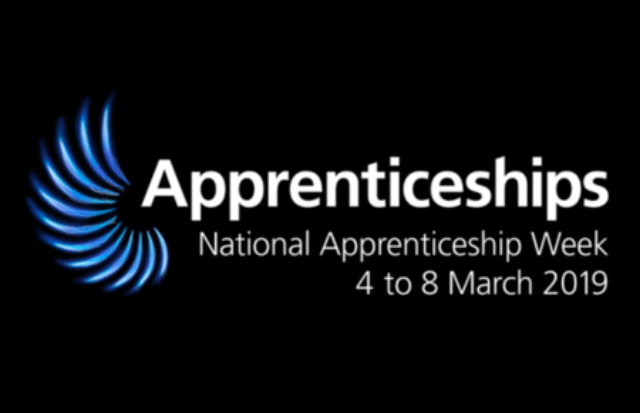
I have worked in the Civil Service for 12 years and I get a lot out of my day job.
I went to university straight after A Levels to study Criminology. Looking back, I can see I was not mature enough to handle the responsibility and lacked the self-control to attend lectures regularly and hand in work on time. So I left, which was a big disappointment to my family, especially my Mum.
I have always regretted not staying at university. I thought I had missed the boat and would not have a similar opportunity, not least because it is hard to go back to studying when you are in a full-time job.
I found out about apprenticeships by chance really – my work revolves around leadership, and the Home Office apprenticeships team got in touch to ask if we could spread the word for them, which we did.
The more I learned about the apprenticeship offer, the more I realised that I too could qualify for an apprenticeship. I applied for one at Level 6, which is degree level, and was accepted. I could not believe it, as it is such a good opportunity. It still astounds me that more civil servants aren’t doing the same thing.
I am now a year into my apprenticeship and getting a huge amount out of it. I am studying Operational Business Management, which is relevant to my job, and it is fantastic to apply what I have learned in the workplace.
We have a different subject focus for each semester, and my last assignment before Christmas was on data analytics. This could not have been better timed, because I was analysing data from the Civil Service People Survey. There were reams of data at my disposal and my learning helped me to bring a more measured approach to this work. My first assignment for this year is on finance and accounting for non-experts, which again is very relevant because, as a G7, I am required to handle budgets.
Each semester there are ten conference calls and two workshops. Your tutor and lecturers are there to guide you through them. I especially enjoy the workshops, as they give you an opportunity to network with your fellow students. There’s a mixture of people on my course – some are also civil servants, but others are from different workplaces, such as British Airways. We support each other and have set up a WhatsApp group. We also email each other and speak on the phone.
An apprenticeship can be as flexible as you want it to be. I have set myself the target of completing mine within four years. I would then like to do a Level 7 apprenticeship, which is equivalent to a master’s degree. It’s important to have the support of your manager at work. Mine is exceptionally supportive, allowing me time to study and the opportunity to put what I’ve learned into practice.
I am about to move into the policy area and my apprenticeship should stand me in good stead there as well. My first thought is always about the relevance of what I am learning to my career.
Since starting my apprenticeship I haven’t looked back. It really is a fantastic opportunity, and I would encourage other civil servants to go for it.

2 comments
Comment by Nithya posted on
This is a very informative article. Thanks for sharing your personal experience. I am just surprised to know the available options in taking up an apprenticeship instead of a part time studies in college. I have always thought of working full time and studying side by side as really stressful. But you have beautifull utilized the benefits of both.
Comment by Vaughan Robbins posted on
Very interesting approach. Personally I was not aware that it is possible to do an apprenticeship alongside your existing civil service role. Perhaps the reason why more civil servants do not take this up - is that they are not aware that the opportunity is available to them.